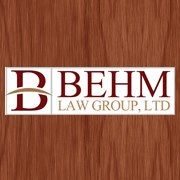
If you have trouble paying debts, Chapter 7 bankruptcy can help you retake control of your financial future. This debt relief option lightens the burden of excessive debts, allowing you to discharge them and start rebuilding your life. If you have questions about this process, below are answers to several common questions.
What You Should Know About Chapter 7 Bankruptcy
How do I know if should file or if I am eligible to file?
The total amount of debt you owe is really not what determines either whether you should file for chapter 7 bankruptcy relief or if you qualify for it. Rather, the appropriate consideration is whether you have the ability to make your regularly monthly payments on your debts AND materially reduce the balances over time. If you are just "treading water" by making your regular monthly minimum payments, you're not materially reducing the balances of your debs, and you may want to consider filing for chapter 7 bankruptcy relief. Chapter 7 bankruptcy is a "needs based" bankruptcy. In order to qualify for chapter 7 bankruptcy relief, you’ll have to pass a means test. If your income falls below the state average income in Minnesota for a household of your size, you’re eligible to consider filing for Chapter 7 bankruptcy protection. In some cases, however, even if your income is above the state average income for a household of your size, you may still be eligible for chapter 7 relief. The means test looks at your income receipts for the six (6) month period preceding your bankruptcy filing. If you had a job during that time that paid you an annual salary of $300,000, and then you lost that job and had either no income or unemployment income, you may still be able to qualify for chapter 7 bankruptcy relief even though your income for the six (6) month period preceding your bankruptcy filing indicates that your income is higher than the state average income for a household of your size.
What debts can I discharge?

Chapter 7 bankruptcy is designed to discharge unsecured debts and secured debts, including credit cards, store charge accounts, and personal loans, mortgages on foreclosed homesteads and loans on repossessed vehicles, bad checks, etc. A bankruptcy discharge may also eliminate some back taxes and medical debts. However, unpaid child support, alimony and liabilities related to fraud or embezzlement are typically not discharged. This means that you must still pay back these obligations in full. Student loans can also be discharged in chapter 7 bankruptcy cases. However, one must actually sue the student loan company in bankruptcy court and prove facts substantiating the "undue hardship" legal standard. Such proceedings can be both very expensive and very protracted. Also, there is no guarantee that the bankruptcy court will agree that the student loan debt should be discharged.
Will I lose my belongings?
In exchange for discharging your debts, the trustee assigned by the bankruptcy court to administer your case may sell some of your non-exempt belongings and distribute the sale proceeds among the creditors. However, you can exempt many assets, including home equity, value in vehicles, musical instruments, valuable jewelry and other assets. In most cases, no property is lost and all that people lose are their debts.
Will Chapter 7 bankruptcy prevent foreclosure?
Chapter 7 bankruptcy will only delay foreclosure proceedings. It can not remove or strip away a mortgage from your homestead. The filing of a bankruptcy petition triggers an automatic stay, which puts an immediate stop to most collection activities. This may give you enough time to negotiate with your lender to reduce the interest rate, add missed payments to the back of the principal, or create a plan to resolve account issues. If you decide to move on, the automatic stay can give you a few months to stay in your homestead and find another place to live.
If you’re struggling with debts you can’t repay, contact Behm Law Group Ltd. in Mankato, MN. These bankruptcy attorneys will help you get the second chance you deserve. They have over 15 years of experience with consumer bankruptcy, whether your situation is better suited to Chapter 7 or Chapter 13. Visit the website to learn more about their services, and call (507) 387-7200 to schedule a consultation.
About the Business
Have a question? Ask the experts!
Send your question

